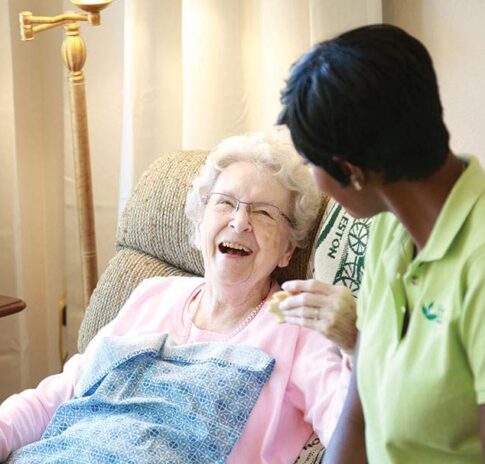When my dad was alive, he used to say “18 and out.” In his mind, he paid for our college and after that it was time to fly on our own. It was an expectation I never tested. In the 30+ years since I left college, I went home for visits but never to live. We took pride in being self-sufficient and “making it on our own.”
Now, my 25-year-old son still lives with me. He has a part-time job making $9.25/hour and pays for his own car insurance, health insurance and gas. That’s about all he can afford. I pay all the living expenses, food, utilities, TV and cable bills. And my college age daughter? I just worry that she’ll be able to get a good job after graduating.
I know that the economy has made it tough for people to afford the expenses of daily living. Sometimes I’m just afraid he’ll be living with me forever, versus learning the valuable lessons we all learned from being independent.
And he’s not the only one. We’ve all heard about aging parents who have to move back in with their kids because they need help. It’s what is known as role reversal: your parents took care of you, but now you are taking care of them. This I totally understand.
However, a study at UCLA makes me scared for the future of my children. Approximately 194,000 Californians between the ages of 54 and 64 had to move back in with their parents between 2005 and 2012. This wasn’t because they needed to be caregivers; instead, they moved back home because of their own financial hardship. That’s a 67.6% increase! This is the age (my age group by the way) when you think people are financially stable and should be well on their way to retirement. And among 18 – 29-year olds, 1.6 Californians have gone back to live in their childhood bedrooms. Talk about role reversal!
This isn’t isolated to California, but will continue to happen in more and more states if the unemployment rate does not continue to decrease.
Maybe it’s time we redefine the meaning of “family.”
I envision a future where a nuclear family no longer lives alone. There will be post-college age children, parents and grandparents all living under one roof. There may be two Moms, two Dads, or even grandparents raising their grandchildren. So instead of learning about independence and being out on your own, kids may benefit in different ways from multiple generations living together. I know that younger people have a grip on technology that we will never have since we didn’t grow up with cell phones, computers and iPads. They are whiz kids and can keep us up-to-date on the new-fangled communication devices.
However, my generation and that of my parents have more wisdom and experience when it comes to life lessons. We have been where they are and have the foresight to know many of the obstacles they will encounter on the journey of life. Unlike young people who make hasty decisions, we have learned patience and can save them from making some of the mistakes we have made.
We should not see moving in together as “defeat” or an inconvenience or giving up your own life. Instead, we should embrace the experience of different perspectives and celebrate family no matter what form it takes.

